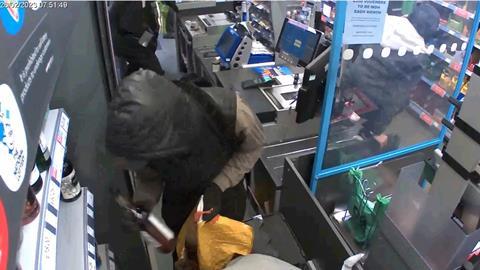
Levels of crime are “out of control” according to the Co-op, which revealed that incidents of retail crime are at their highest ever, having surged 35% YOY. Co-op claimed that more than 175,000 incidents were recorded in the first six months of this year – almost 1,000 incidents every day. The retailer is calling for an urgent change in police response, claiming that a freedom of information request revealed 71% of serious retail crimes are not responded to. As a result, retailers are being targeted by repeat offenders and criminal gangs operating exempt from consequences.
With one inner city London store ‘looted’ three times in a single day, Co-op warned that this level of crime was unsustainable and could even see some communities become a no-go area for local stores. With Co-op member, colleague and community concern paramount, the convenience retailer called on all police forces and crime commissioners to target prolific offenders and for local organised criminal gangs to reverse the existing environment in many cities where they operate without fear of being caught or charged.
Data from the Association of Convenience Stores’ (ACS’) latest annual crime report show that almost two-thirds (63%) of crime is driven by repeat and prolific offenders, with drug or alcohol addictions and, local organised criminal gangs, among the main drivers of offending. Yet a Freedom of Information request by Co-op has highlighted that police failed to respond in 71% of serious retail crimes reported. With some, according to their own data, not responding to nine in ten serious incidents reported.
With crime often the flashpoint for attacks, assault, abuse and anti-social behaviour, Co-op also revealed that front-line store workers had seen physical assaults increase year-on-year by almost one-third (30%) and, anti-social behaviour and verbal abuse rising by a fifth (20%).
Matt Hood, Co-op Food managing director, said: “We know retail crime is driven by repeat and prolific offenders and, organised criminal gangs. It is an ongoing challenge for all retailers, and in the worst instances can even be described as ‘looting’. I have seen some horrific incidents of brazen and violent theft in our stores, where my store colleagues feel scared and threatened. I see first-hand how this criminal behaviour also erodes the very fabric of our communities - it’s hard to over-emphasise how important urgent change is. Co-op has invested significantly in keeping colleagues and stores safe, but we need the police to play their part. Too often, forces fail to respond to desperate calls by our store teams, and criminals are operating in communities without any fear of consequences.”
ACS chief executive, James Lowman, said: “Our members are at the sharp end, seeing crime in their communities get steadily worse. Shop theft is rising because repeat offenders and organised criminals are targeting local shops to steal goods to resell. This organised criminal activity exploits vulnerable people by getting them to steal to order in exchange for their next fix, funds the illegal drug trade, and harms businesses that provide essential services to communities. The police have to face up to theft, violence and anti-social behaviour in and around local shops. Cracking down on the criminals who account for the majority of this crime against our members would be the most effective way to make our communities safer.”
Paddy Lillis, Usdaw general secretary says: “Evidence is mounting that retail crime is on the increase, added to this Co-op report is a 24% uplift in official police recorded incidents of shoplifting. This is very concerning for our members in retail, because shoplifting is not a victimless crime. Theft from shops has long been a major flashpoint for violence and abuse against shopworkers and, as the Co-op rightly says, it is often linked to organised crime gangs. Having to deal with repeated and persistent shoplifters can cause issues beyond the theft itself like anxiety, fear and in some cases physical harm to retail workers. There must be better coordination to ensure that government, retail employers, police and the courts work together to help protect shopworkers, giving them the respect they deserve.”
Phillip Davies, Conservative MP for Shipley and the chair of the All Party Parliamentary Group (APPG) on Customer Service, added: “This patchy record of police forces uncovered by the Co-op is simply not good enough. Our frontline workers deserve far better. It is no good having stricter laws in place to punish offenders if the police are not properly investigating these crimes and ensuring perpetrators are punished. Those police forces with the worst record need to find out what those with the best record are doing and ensure they bring themselves up to the same standard.”
Where clear co-operation around this issue exists it is making a difference. The Co-op works closely with a number of forces including Nottinghamshire who have been effective in tackling persistent and prolific offenders. The issues run deeper than policing alone however, in Nottinghamshire, this year, 17 prolific offenders have been removed off the streets, with a combined 5.6 years of custodial sentences, and a further 13 repeat offenders given a Criminal Behaviour Order (CBO) or rehabilitation.
Police Inspector Oliver Vale, Nottinghamshire Police, said: “The collaborative work that has taken place between Nottinghamshire Police and our partners in Co-Op, Mitie and NBCS has provided us with a fantastic opportunity to identify those not only committing the most harm in our retail communities but to our communities as a whole. Retail crime is something we recognise within Nottinghamshire Police as being an issue that needs to be proactively tackled but we cannot do this alone and the information sharing model that Op Synergy has developed has allowed for us to collaboratively secure significant convictions and prohibitive orders on some of our most prolific retail offenders by working with the Co-op.”
Co-op has invested more than £200m in recent years in colleague and community safety to counter criminal behaviour - per store this equates to four times the average sector spend on security and safety measures.
Co-op uses a wide range of targeted measures to deter criminal behaviour. This includes: interactive and remote monitored CCTV; body-worn cameras; communication headsets for frontline colleagues; covert and non-covert guarding and security; Smartwater; GPS tracked security cases and, ‘dummy’ packaging on shelves - which Co-op believes will only become a more prevalent and familiar sight in retailing.
The convenience retailer also successfully campaigned for stricter sentencing in law for violent incidents against retail workers through its Safer Colleagues, Safer Communities campaign - with the new law introduced in Scotland in August 2021, and England and Wales the following May.





















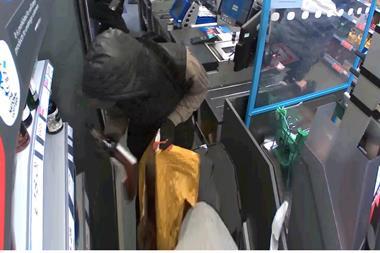

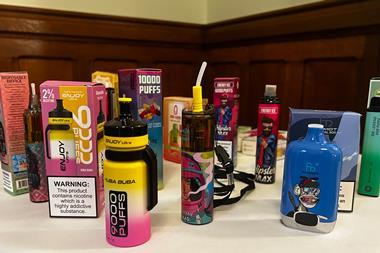

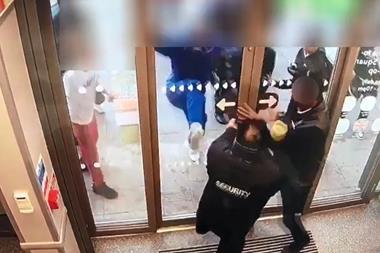
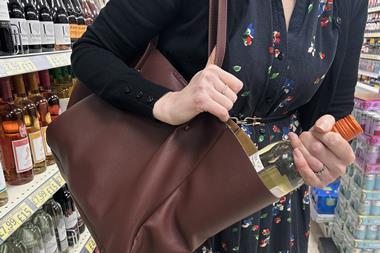
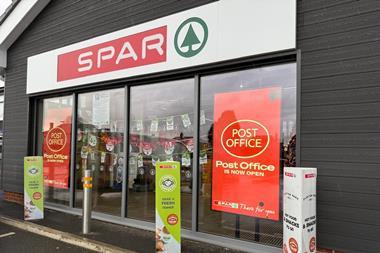





No comments yet